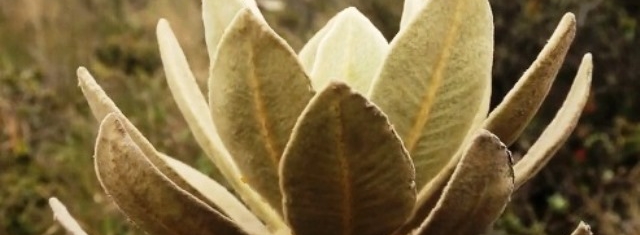Lifestyle
One of the last Espeletia species
still lives in Boyaca

Espeletia paipana, last species found in Colombia (Source: Press Office Ecopetrol Colombia)
USPA NEWS -
Colombian Institute Alexander Von Humboldt found in Chontales Moorland (a place located in the west corridor of the oriental mountain range in Colombia), the last population of 40 individuals of espeletia paipana, which is a species of giant espeletia with wide and hairy leaves.
This founding took place in one of the areas of Ecopetrol transport projects. Ecopetrol, the biggest oil Colombian company, has confirmed that the discovery of the species mentioned will be included in the program of Environmental Planning to preserve biodiversity in Ecopetrol Operative Areas. This project has been developed since 2006 and nowadays there are 26 million hectares experts are studying in exploitation areas such as Catatumbo, Orinoquia and North Andean zone.
The Environmental Planning project helps the enterprise to obtain valuable information, but also supports environmental authorities to develop their own activities.
During the first phase of this project, Ecopetrol worked over 9 million hectares in two regions: Magdalena Medio and Llanos Orientales, in which there were developed different research projects for identifying the priorities to preserve Colombian environment.
Espeletia species are in imminent danger due to the destruction of moorland environment that is being used for intensive agricultural purposes, especially potato crops. Even though this activity has been declared illegal by the Colombian government, some colombian farmers keep on developing this main means of surviving.
During the first phase of this project, Ecopetrol worked over 9 million hectares in two regions: Magdalena Medio and Llanos Orientales, in which there were developed different research projects for identifying the priorities to preserve Colombian environment.
Espeletia species are in imminent danger due to the destruction of moorland environment that is being used for intensive agricultural purposes, especially potato crops. Even though this activity has been declared illegal by the Colombian government, some colombian farmers keep on developing this main means of surviving.
Liability for this article lies with the author, who also holds the copyright. Editorial content from USPA may be quoted on other websites as long as the quote comprises no more than 5% of the entire text, is marked as such and the source is named (via hyperlink).





